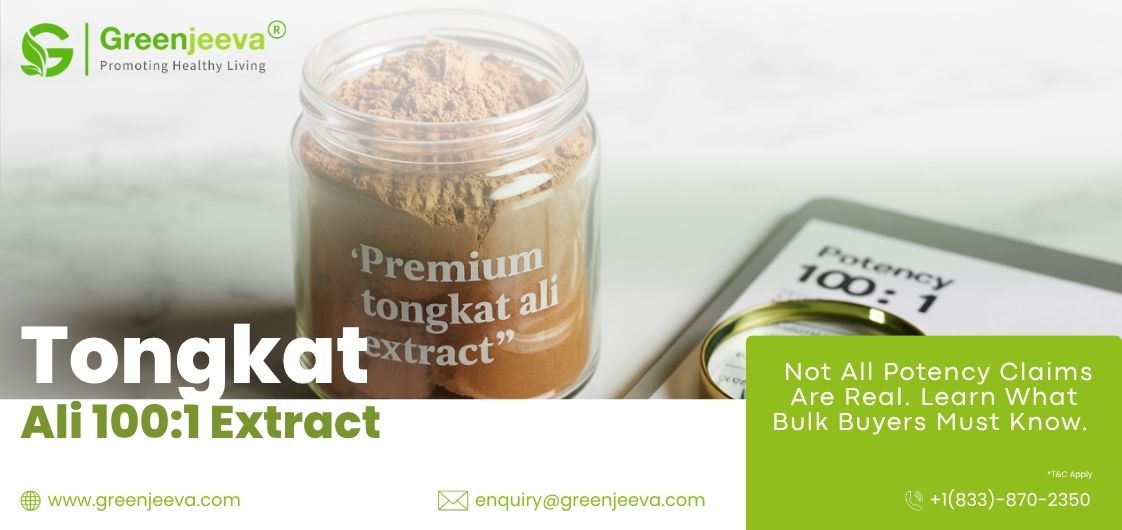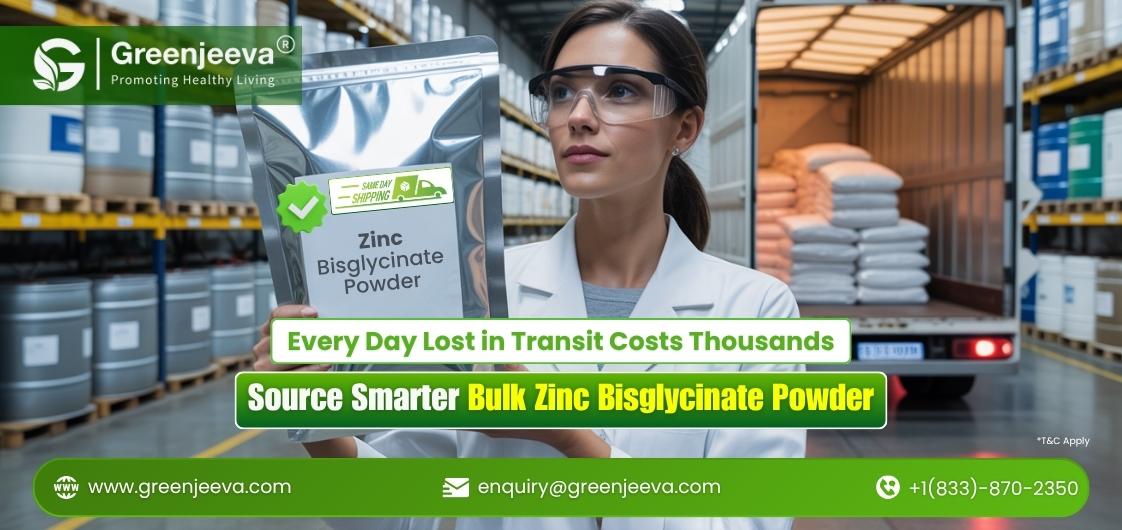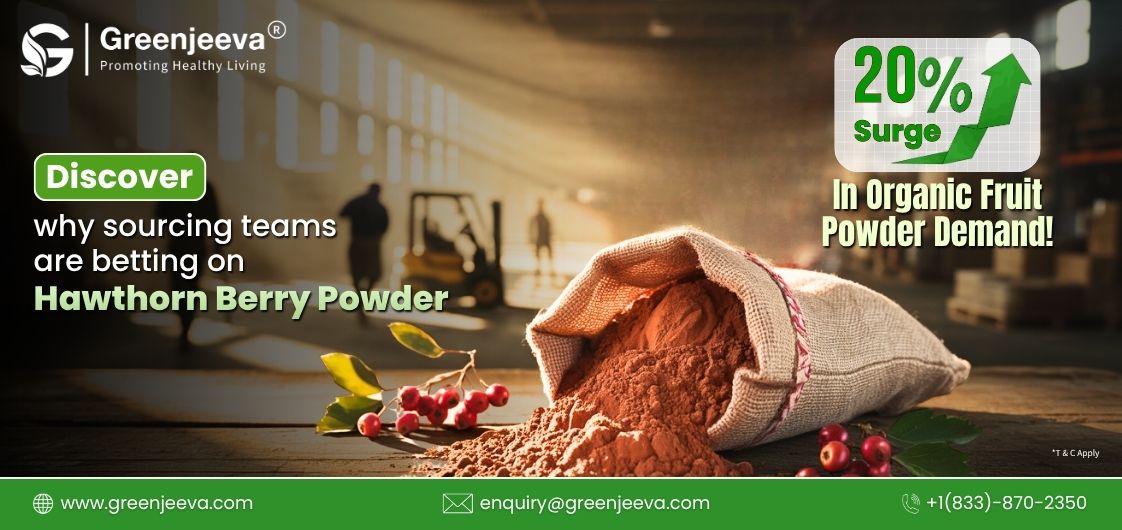Is Your Tongkat Ali 100:1 Extract Really What It Claims to Be?

In a market where standardized potency is often tossed around loosely, how do you know if your Tongkat Ali Root Extract Powder 100:1 is the real deal?
If you're sourcing for a performance-focused supplement line or managing formulations for private label clients there’s no room for guesswork. Yet many products labeled “100:1” don’t even come close to delivering the bioactive punch they promise.
So, what’s hiding behind the 100:1 claim? And how can you, as a savvy B2B Tongkat Ali ingredient distributor, manufacturer, or formulator, avoid the trap of diluted or misrepresented extracts?
Let’s pull back the curtain.
What Does “100:1” Really Mean in Tongkat Ali?
When a Tongkat Ali extract claims a 100:1 ratio, it implies that 100 parts of raw Eurycoma longifolia root were used to produce 1 part of finished extract. In theory, this means a highly potent extract, rich in the bioactives that give Tongkat Ali its reputation most notably Eurycomanone.
But here’s the catch: not all 100:1 extracts are standardized or even authentic. Many are simply dried powders or blends with fillers, carrying little to none of the intended bioactive content.
If you’re buying in bulk, or using it in Tongkat Ali Powder for Supplements, this could spell disaster—both for product efficacy and your brand’s credibility.
Red Flag #1: “100:1” Without Eurycomanone Testing
The most effective Tongkat Ali Root Extract Powder 100:1 product are those with standardized Eurycomanone content, typically in the 1-3% range. This compound is closely linked to the adaptogenic and testosterone-supportive effects of Tongkat Ali.
Yet many extract powders on the market—especially lower-cost imports—don’t test for Eurycomanone at all.
Best Practice: Always ask your Tongkat Ali Extract Supplier USA for third-party lab results showing Eurycomanone percentage. If they can’t provide one, consider it a hard pass.
Red Flag #2: Solvent Ambiguity
Did the extract come from an ethanol process? Water extraction? Acid hydrolysis?
Extraction method matters. Not just for efficacy, but also for clean-label compliance—especially if you serve clients with USDA Organic, non-GMO, or allergen-free standards.
Many trustworthy suppliers in the USA and Canada offer ethanol or water-based extractions, avoiding harsh solvents that might compromise the bioactive profile.
Look for: Documentation detailing solvent type, extraction process, and residual solvent analysis. A genuine 100:1 Tongkat Ali Extract Manufacturer should have these ready.
Red Flag #3: No Origin Transparency
Tongkat Ali is native to Southeast Asia—primarily Malaysia, Indonesia, and Thailand. But with increasing global demand, not all suppliers are sourcing ethically or sustainably.
Some offer powdered aerial parts or leaves (which are cheaper), instead of roots. Others mix in maltodextrin or non-declared carriers to bulk up the weight.
Pro Tip: Ask your supplier for a Certificate of Origin, wild-harvest claims, and verification that only Eurycoma longifolia roots are used.
If you’re buying Wholesale Tongkat Ali Root Powder, this due diligence is non-negotiable.
Red Flag #4: Lack of Documentation for Regulatory Review
If your brand or clients sell in the U.S. or Canada, compliance with FDA and CFIA standards is critical. That means:
- COA (Certificate of Analysis)
- MSDS
- Heavy metal and microbial testing
- Allergen and GMO status
- Shelf-life and storage details
Unfortunately, many bulk ingredient brokers skip these steps—or offer generic, templated documents that won’t hold up under inspection.
Choose a USDA Organic Herbal Extracts Supplier that’s already done the homework. Look for full batch documentation, ideally with QR-code traceability or digital access to lab reports.
Clean Label Demands Are Rising. Is Your Tongkat Ali Ready?
Whether you’re formulating for men’s vitality, adaptogenic blends, or sports nutrition SKUs, clean-label expectations are now table stakes.
Consumers read labels. Retailers check documentation. And your sourcing choices reflect your brand’s integrity.
That's why it's no longer enough to just buy “bulk Tongkat Ali powder.” You need a verified Tongkat Ali for private label formulations one that holds up to label claims, audits, and consumer scrutiny.
What Sets a Quality B2B Tongkat Ali Supplier Apart?
Here’s what separates credible suppliers from the crowd:
If your Tongkat Ali Extract Supplier USA isn’t checking these boxes—it may be time to reevaluate.
Real Talk: The Cost of Getting It Wrong
Let’s be blunt: low-grade Tongkat Ali can do more than just underperform—it can damage your product's reputation, lead to customer refunds, or trigger regulatory headaches.
Even worse? You might not find out until it’s already in the hands of consumers.
Don’t just ask for a Tongkat Ali Root Extract Powder 100:1. Ask for proof of potency.
Ideal Applications for 100:1 Tongkat Ali Extract
- Health Formulations – Low dosage, high impact
- Powdered Supplement Blends – Works well with maca, ginseng, ashwagandha
- Sports Nutrition SKUs – Pre-workout or vitality stacks
- Men’s Health Brands – Private label ready
- Adaptogenic Botanical Extract Powder Lines – Modern wellness meets traditional medicine
How to Vet a Wholesale Tongkat Ali Supplier (Checklist)
Here’s a quick sourcing checklist you can use when evaluating any 100:1 Tongkat Ali Extract Manufacturer:
- Is the extract standardized to Eurycomanone?
- Are lab results from an accredited third-party lab?
- Is the root origin traceable and wild-harvested?
- Is the product free of maltodextrin and fillers?
- Are documents ready for regulatory inspection (COA, MSDS, etc.)?
- Does the supplier maintain inventory in the USA or Canada?
- Can they support clean-label or private label compliance?
Nail these, and you’re likely partnering with a quality B2B Tongkat Ali ingredient distributor.
Final Thoughts: Don’t Just Source, Strategize.
Tongkat Ali is booming but so is buyer skepticism. The best way to stand out? Choose transparency, consistency, and documentation over hype.
By aligning with a supplier who meets rigorous standards, you not only ensure product integrity but also protect your downstream partners and brand equity.
So, is your Tongkat Ali 100:1 extract really what it claims to be?
If not it’s time to upgrade your supply chain.
Looking for Verified Tongkat Ali Root Extract Powder 100:1?
Work with a USDA Organic Herbal Extracts Supplier that offers:
- Full traceability
- Third-party testing
- Bulk inventory in the USA and Canada
- Clean-label compliance for private label brands
Request documentation or samples today.
Let’s make sourcing smarter.
**The Food and Drug Administration has not evaluated these statements. This product is not intended to diagnose, treat, cure, or prevent any disease. **


.jpg)



